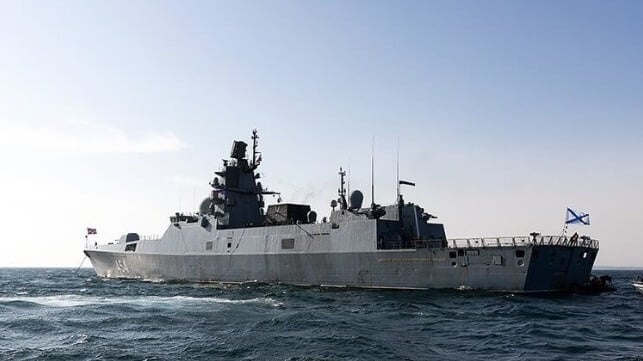Russia's Shadow Fleet Tankers Could Get Naval Escorts

Days after six NATO members agreed to start checking the insurance paperwork of Russia's "shadow fleet" of tankers, Denmark's military intelligence service warned that Russia may begin dispatching naval escorts to follow along with these high-risk vessels.
Since the G7 "price cap" restriction on Russian oil shipping took effect in late 2022, Russia has built up a fleet of anonymously-owned, questionably-regulated tankers, thereby minimizing exposure to Western restrictions on its oil exports. As these gray-market ships cannot obtain cover from the well-capitalized insurance markets in Europe, coastal states in the Baltic - like Denmark - are uncertain whether the shipowners would be able to pay claims in the event of a major spill. The risk of pollution is amplified by the shadow fleet's high average age, uncertain management and tendency to avoid pilotage.
On Monday, six NATO nations with coastlines along Russia's Baltic and North Sea oil shipment route - the UK, Denmark, Sweden, Finland, Poland and Estonia - agreed to ask shadow fleet tankers for proof of insurance at key transit points, Estonian Prime Minister Kristen Michal announced Tuesday. If the tankers do not answer the request, the non-response "will be assessed and addressed in coordination with our international partners," he said.
On Wednesday, the Danish Defense Intelligence Service cautioned that rising tensions in the Baltic could prompt Russia to assign naval escorts to its controversial tanker fleet, further increasing friction between NATO and Russian forces. Other likely Russian actions in the Baltic Sea could include more GPS jamming - already a serious issue - and other electronic warfare activity.
"We may also see Russia appear more threatening to Denmark and other NATO countries' military aircraft and ships. This entails a risk of misunderstandings and minor collisions between boats in the Baltic Sea," the agency warned.
That risk may also extend to the Arctic, an area of increasing strategic importance. "Russia will demonstrate strength in the region through aggressive and threatening behavior, which will entail a greater risk of escalation than previously seen in the Arctic," warned the Danish Defense Intelligence Service.
